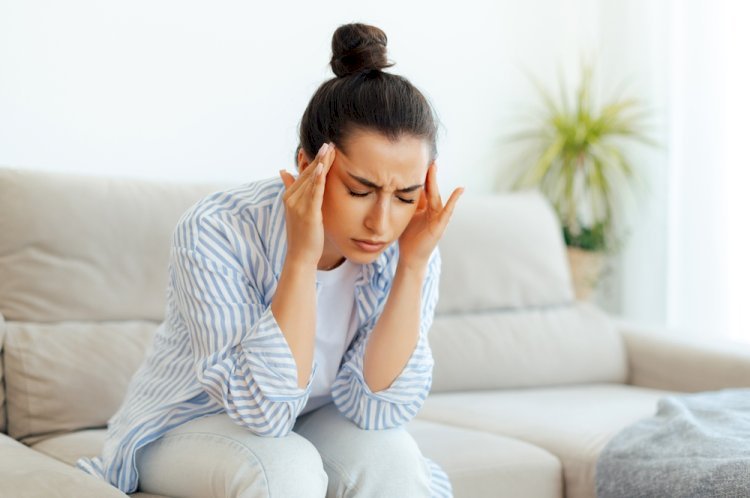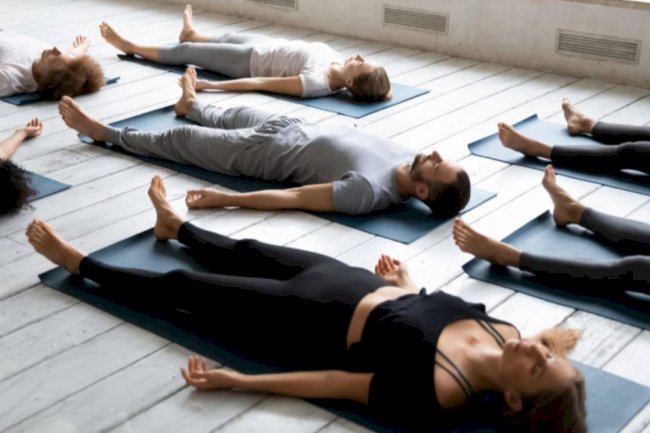The Science Behind Sleep: Why Your Body Needs Rest to Function Properly

Have you ever noticed that after a night of poor sleep, you wake up with a pounding headache? Lack of sleep triggering your headaches isn’t just a coincidence—it’s a scientifically proven connection. Sleep is not just a passive state of rest; it’s a critical biological process that affects every system in your body. From brain function and immune health to emotional regulation and pain sensitivity, sleep plays a vital role in keeping you healthy and functional.
In this blog, we’ll explore the science behind sleep, why your body needs it to perform at its best, and how chronic sleep deprivation can lead to serious health consequences, including those frustrating headaches.
The Sleep Cycle: What Happens When You Rest?
Sleep isn’t just one uniform state—it’s a complex cycle of different stages, each with its own critical functions. The two main types of sleep are:
REM (Rapid Eye Movement) Sleep
- Brain activity: Nearly as active as when awake
- Function: Memory consolidation, emotional processing, dreaming
- Duration: About 20-25% of total sleep (longer in later sleep cycles)
Non-REM Sleep (Stages 1-3)
- Stage 1 (Light Sleep): Transition from wakefulness to sleep
- Stage 2 (Intermediate Sleep): Body temperature drops, heart rate slows
- Stage 3 (Deep Sleep): Tissue repair, immune strengthening, growth hormone release
A full sleep cycle lasts about 90 minutes, and your body needs 4-6 cycles per night for optimal function. Disrupting these cycles—whether due to insomnia, sleep apnea, or poor sleep habits—can lead to impaired cognition, mood swings, and even physical pain like headaches.
Why Does Lack of Sleep Cause Headaches?
If you’ve ever experienced a migraine or tension headache after a sleepless night, science explains why:
-
Increased Cortisol & Stress Hormones
- Sleep deprivation elevates cortisol, the body’s primary stress hormone.
- High cortisol levels trigger inflammation, which can lead to vascular headaches (like migraines).
-
Reduced Serotonin Levels
- Serotonin helps regulate pain perception and mood.
- Poor sleep lowers serotonin, making you more susceptible to headaches.
-
Muscle Tension & Jaw Clenching
- Many people clench their jaws or grind their teeth (bruxism) during poor sleep.
- This leads to tension headaches upon waking.
-
Disrupted Glymphatic System (Brain Detox)
- During deep sleep, the brain’s glymphatic system flushes out toxins.
- Without enough sleep, waste buildup can contribute to headaches and even long-term neurological risks.
Studies show that people who get less than 6 hours of sleep per night are significantly more likely to suffer from chronic headaches and migraines.
What Happens to Your Body When You Don’t Get Enough Sleep?
Beyond headaches, chronic sleep deprivation has devastating effects on nearly every system in your body:
-
Brain Function & Mental Health
- Memory loss & poor concentration (sleep helps consolidate memories)
- Increased risk of depression & anxiety (REM sleep regulates emotions)
- Higher likelihood of Alzheimer’s (toxin buildup in the brain)
-
Immune System Weakness
- Just one night of poor sleep reduces immune efficiency by up to 70%.
- Chronic sleep loss increases susceptibility to infections, colds, and even long-term diseases like cancer.
-
Heart & Metabolic Health
- High blood pressure & heart disease risk (sleep helps regulate blood pressure)
- Increased insulin resistance (leading to diabetes)
- Weight gain & obesity (disrupted hunger hormones like ghrelin & leptin)
-
Pain Sensitivity
- Sleep deprivation lowers pain tolerance, making chronic conditions (like arthritis or back pain) feel worse.
- This creates a vicious cycle—pain disrupts sleep, and poor sleep worsens pain.
How Much Sleep Do You Really Need?
The National Sleep Foundation recommends:
- Adults (18-64): 7-9 hours
- Older adults (65+): 7-8 hours
- Teens: 8-10 hours
- Children: 9-12 hours
However, quality matters just as much as quantity. If you’re getting 8 hours but still waking up exhausted, you may have:
- Sleep apnea (breathing interruptions)
- Restless leg syndrome (uncontrollable leg movements)
- Insomnia (trouble falling/staying asleep)
How to Improve Sleep Quality & Prevent Sleep-Related Headaches
If lack of sleep is triggering your headaches, here’s how to break the cycle:
-
Fix Your Sleep Hygiene
- Keep a consistent sleep schedule (even on weekends)
- Avoid screens 1 hour before bed (blue light blocks melatonin)
- Make your bedroom cool, dark, and quiet (ideal temperature: 60-67°F)
-
Manage Stress & Relax Before Bed
- Practice deep breathing or meditation
- Try progressive muscle relaxation
- Use white noise or calming music
-
Watch Your Diet & Hydration
- Avoid caffeine after 2 PM
- Limit alcohol before bed (disrupts REM sleep)
- Stay hydrated, but reduce liquids before bedtime (to prevent waking up)
-
Treat Underlying Sleep Disorders
- See a doctor if you snore loudly or gasp for air at night (possible sleep apnea)
- Consider a sleep study if you have chronic insomnia
- Check medications that might disrupt sleep
When to Seek Medical Help
If you experience:
- Chronic headaches upon waking
- Extreme daytime fatigue despite "enough" sleep
- Memory problems or mood disorders
You may need a sleep specialist to diagnose potential disorders like:
- Sleep apnea
- Chronic insomnia
- Restless leg syndrome
The Surprising Link Between Sleep and Gut Health
Emerging research reveals a fascinating bidirectional relationship between sleep quality and gut microbiome health. Your digestive system doesn’t just process food—it significantly influences sleep patterns through what scientists call the "gut-brain axis."
How Your Gut Affects Sleep:
- Microbiome Diversity: People with healthier gut bacteria profiles tend to experience:
- Faster sleep onset
- More restorative deep sleep
- Fewer nighttime awakenings
- Serotonin Production: About 90% of your body's serotonin (a precursor to melatonin) is produced in the gut
- Inflammation Control: An unhealthy gut microbiome increases systemic inflammation, which can:
- Disrupt sleep cycles
- Intensify sleep-related headaches
Sleep's Impact on Gut Health:
- Just two nights of poor sleep can alter your gut microbiome composition
- Chronic sleep deprivation increases intestinal permeability ("leaky gut")
- Shift workers show higher rates of IBS and other digestive disorders
Practical Solutions:
- Probiotic-rich foods: Yogurt, kefir, sauerkraut (especially before bed)
- Prebiotic fibers: Garlic, onions, bananas (feed beneficial gut bacteria)
- Avoid late-night heavy meals: Digestion competes with sleep processes
The Hidden Role of Circadian Rhythms in Sleep Quality
Your body operates on a sophisticated 24-hour biological clock that regulates far more than just sleep:
Key Circadian-Influenced Functions:
- Hormone release (cortisol, melatonin, growth hormone)
- Body temperature fluctuations
- Metabolic processes
- Immune system activity
Modern Life vs. Circadian Biology:
- Blue light exposure at night tricks your brain into thinking it's daytime
- Irregular eating patterns confuse metabolic clocks
- Social jet lag (different sleep schedules on weekends) creates biological confusion
Circadian Optimization Tips:
- Morning sunlight exposure (resets your master clock)
- Consistent meal times (even on weekends)
- Red-tinted glasses for evening screen use (blocks melatonin-disrupting blue light)
Sleep and Athletic Recovery: Why Rest is the Best Performance Enhancer
For athletes and fitness enthusiasts, sleep is the ultimate legal performance-enhancing drug:
Physiological Benefits for Recovery:
- Human Growth Hormone (HGH) release peaks during deep sleep
- Muscle protein synthesis accelerates during rest
- Inflammation reduction occurs during quality sleep
Performance Impacts of Poor Sleep:
- 14% decrease in athletic performance after poor sleep
- Increased injury risk due to slower reaction times
- Reduced endurance capacity from impaired glycogen storage
Sleep Optimization for Athletes:
- Post-workout naps (20-30 minutes to enhance recovery)
- Temperature-controlled recovery (cool room for optimal sleep)
- Electrolyte balance (prevents nighttime leg cramps)
You may also read: How Veterans Can Improve Their Sleep Quality?
Final Thoughts: Sleep Is Non-Negotiable for Health
Your body isn’t designed to run on caffeine and willpower alone. Sleep is a biological necessity, not a luxury. If lack of sleep is triggering your headaches or causing other health issues, it’s time to prioritize rest.
By understanding the science behind sleep, you can make informed choices to improve your sleep quality—and in turn, your overall well-being.
What's Your Reaction?














